Enhancing vocabulary Normal Worksheets for Ages 7-8
11 filtered results
-
From - To
Enhance your child's vocabulary with our engaging Normal Worksheets specifically designed for ages 7-8! These worksheets are perfect for reinforcing language skills through fun and interactive exercises. Focusing on synonyms, antonyms, word meanings, and contextual usage, our resources provide an effective way for young learners to expand their vocabulary while enjoying the learning process. Easy-to-follow instructions and colorful illustrations make practice enjoyable, ensuring your child stays motivated. These worksheets can be effortlessly integrated into home or classroom settings, promising valuable learning experiences. Foster a love for words and empower your child's communication skills with our enriching vocabulary worksheets!
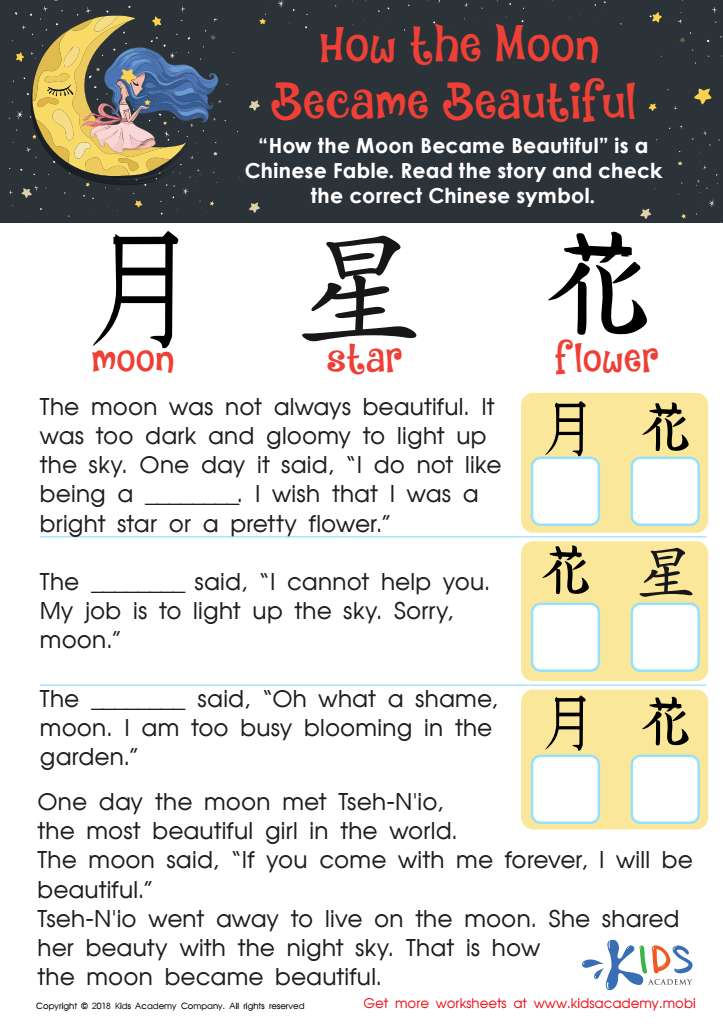

How the Moon Became Beautiful Worksheet
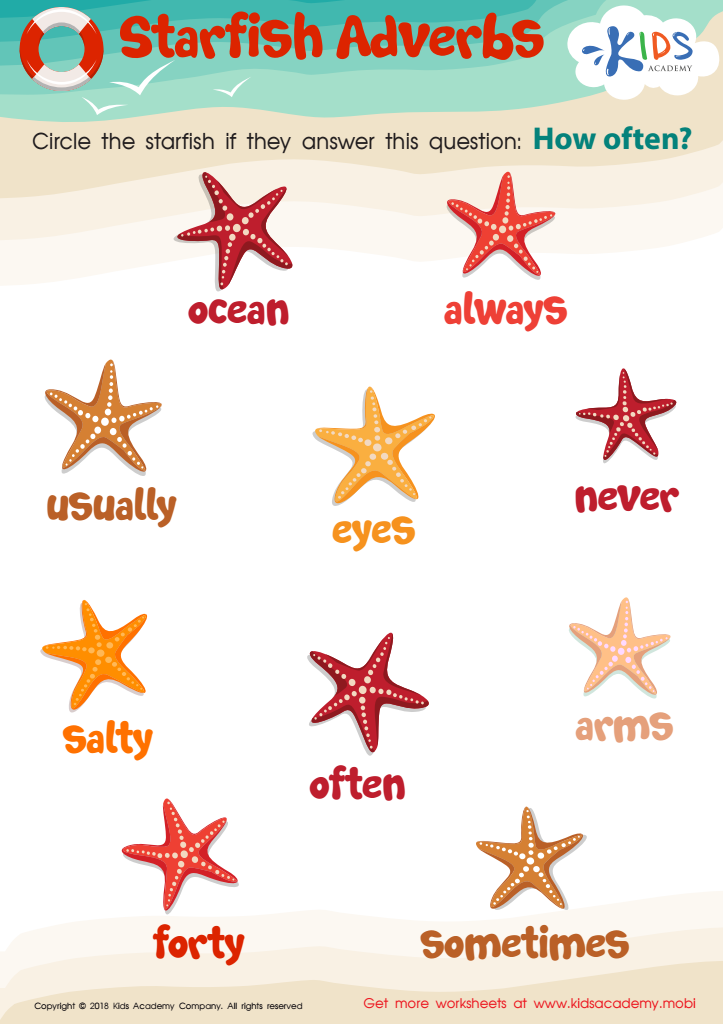

Starfish Adverbs Worksheet
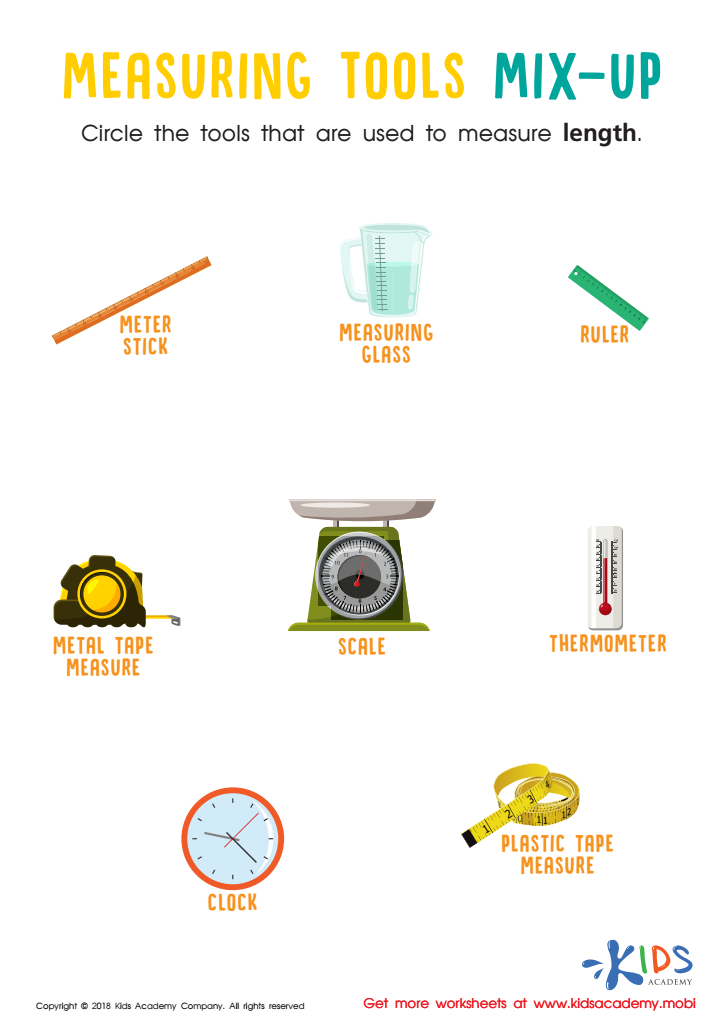

Measuring Tools Mix–up Worksheet
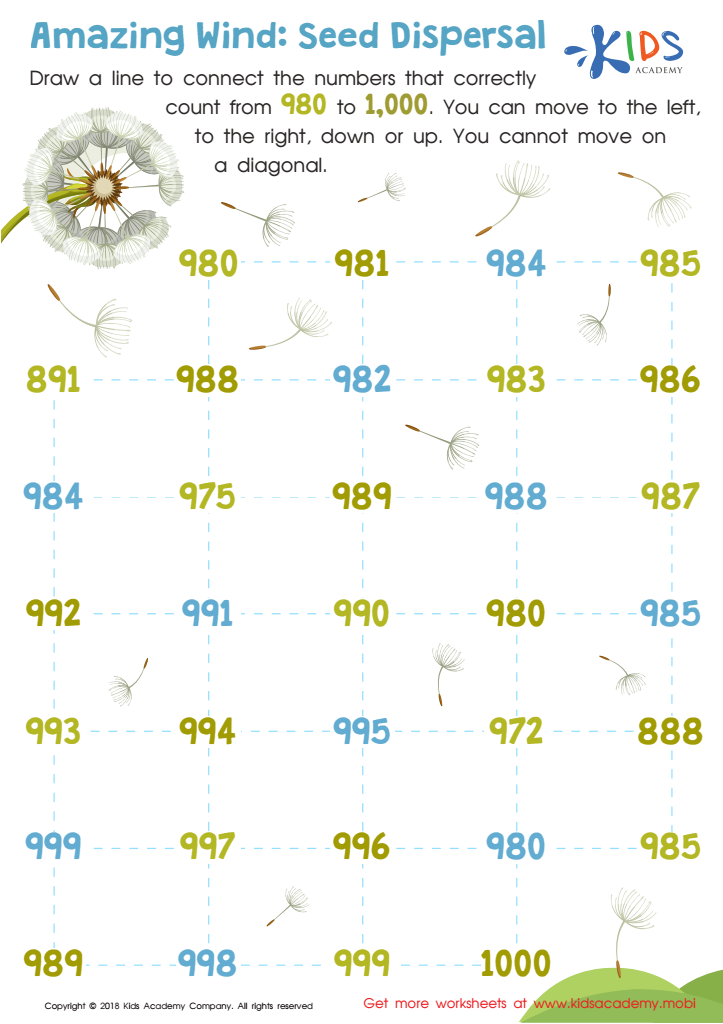

Amazing Wind: Seed Dispersal Worksheet
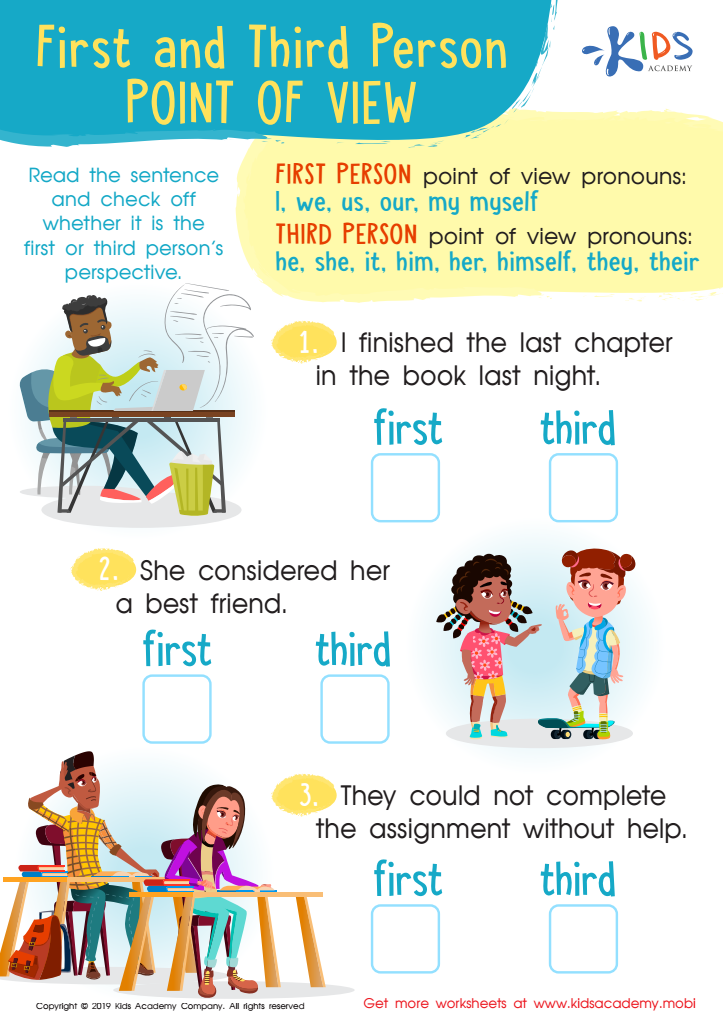

First and Third Person Point of View Worksheet
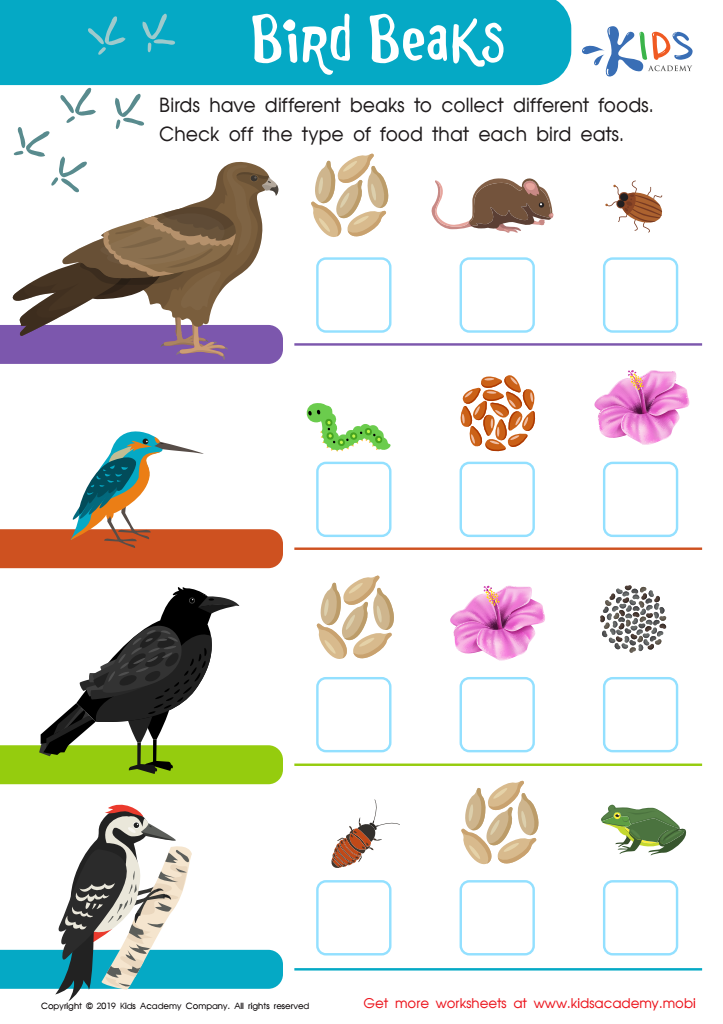

Bird Beaks Worksheet
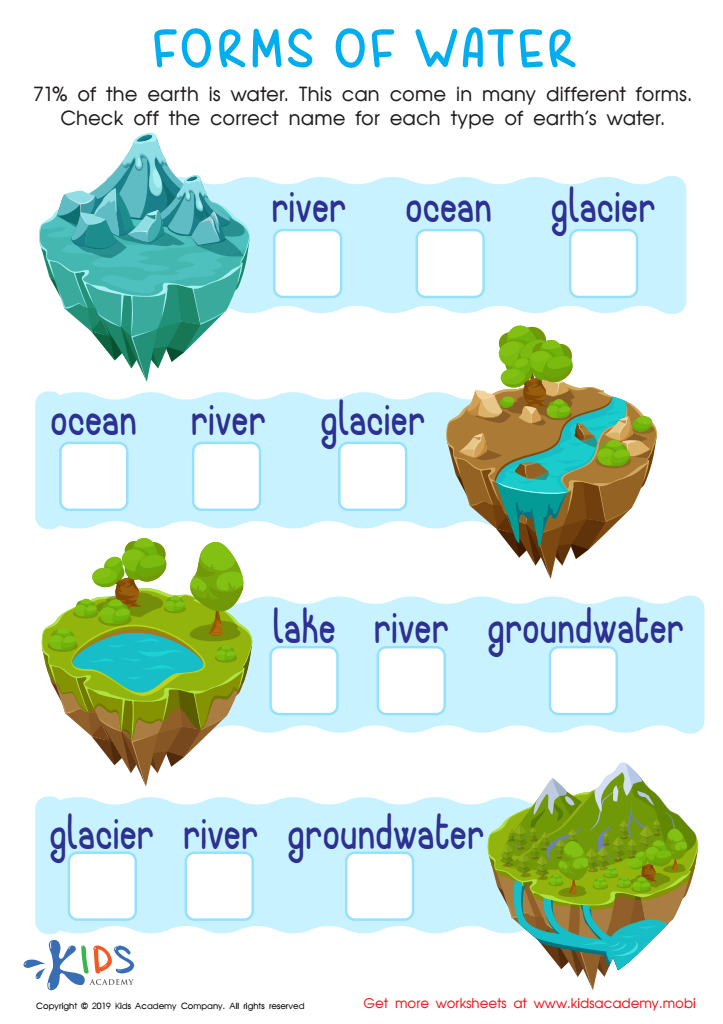

Forms of Water Worksheet
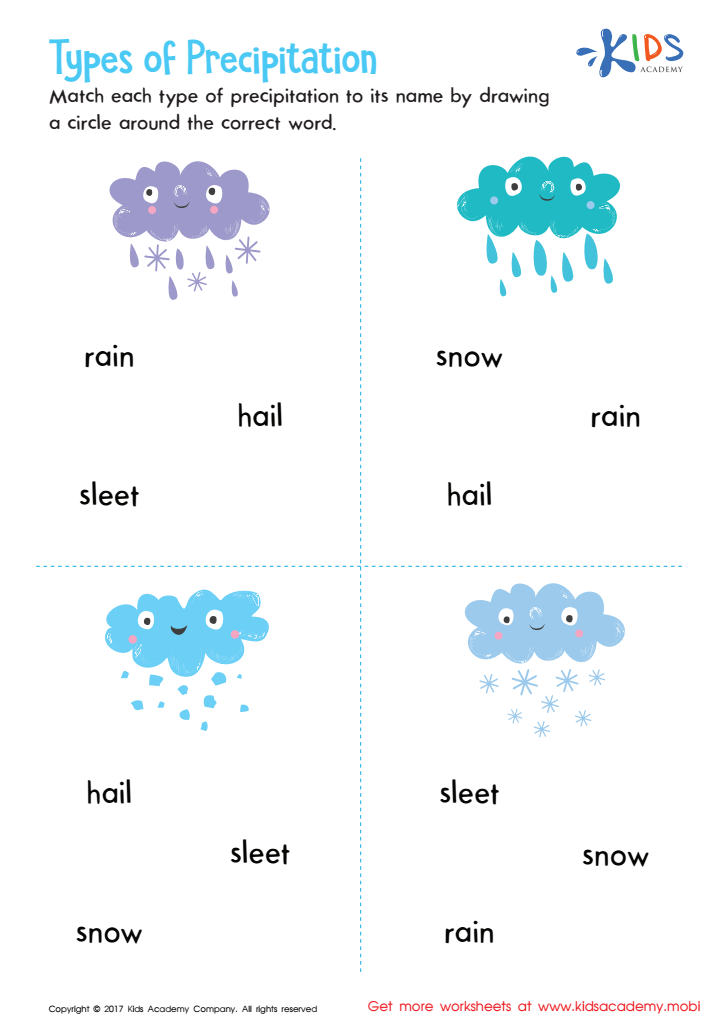

Types of Precipitation Printable
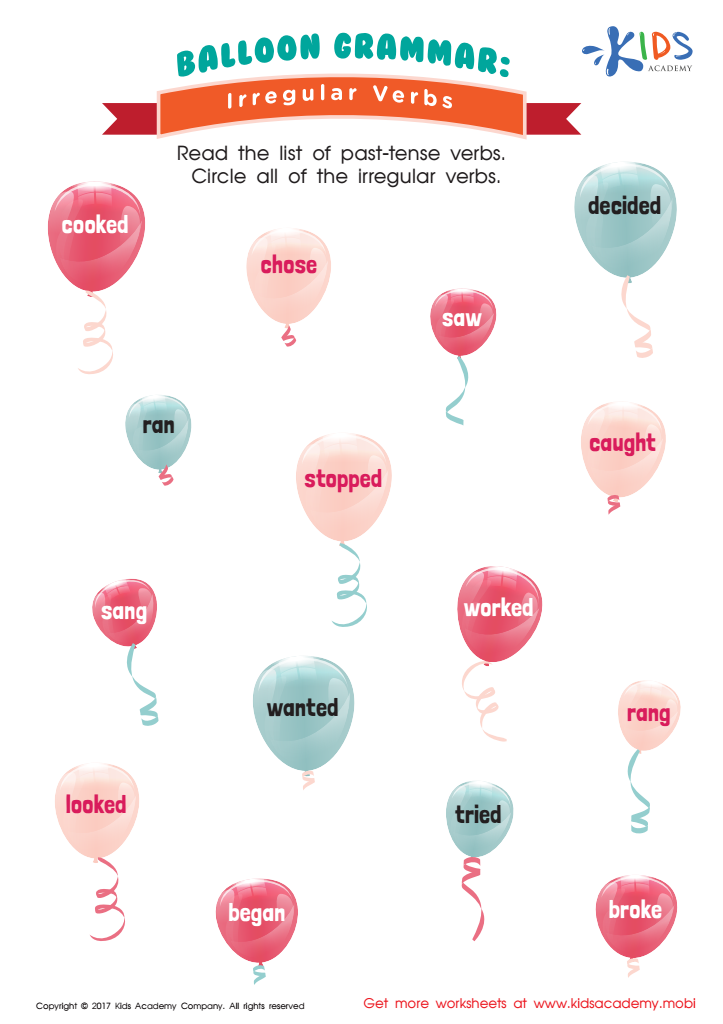

Irregular Verbs: Baloons Worksheet
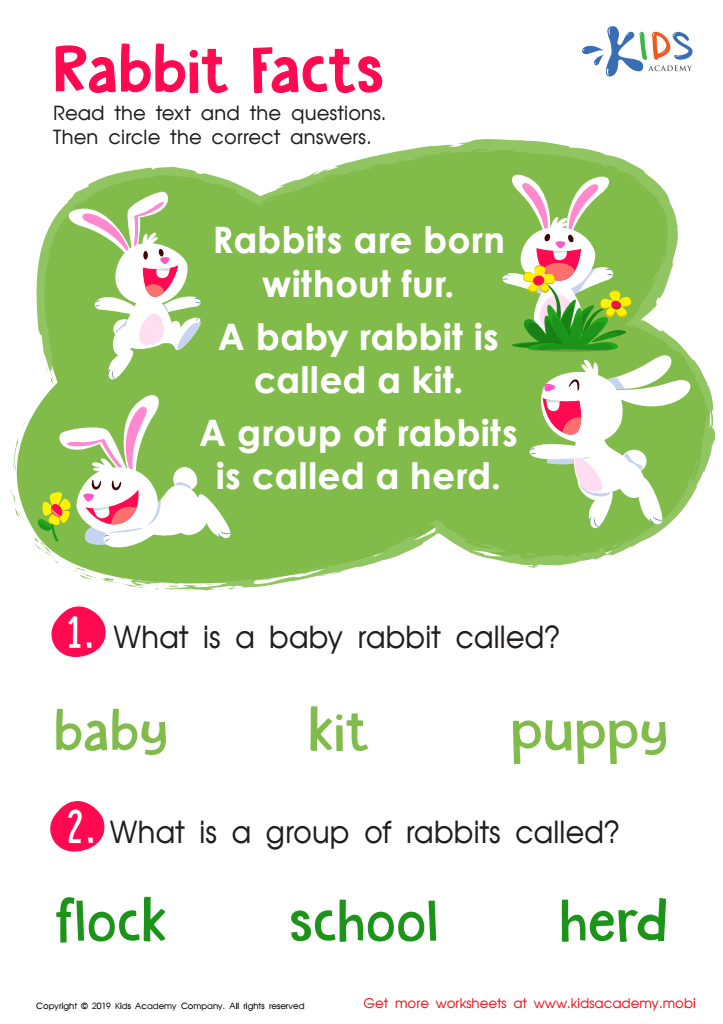

Rabbit Facts Worksheet
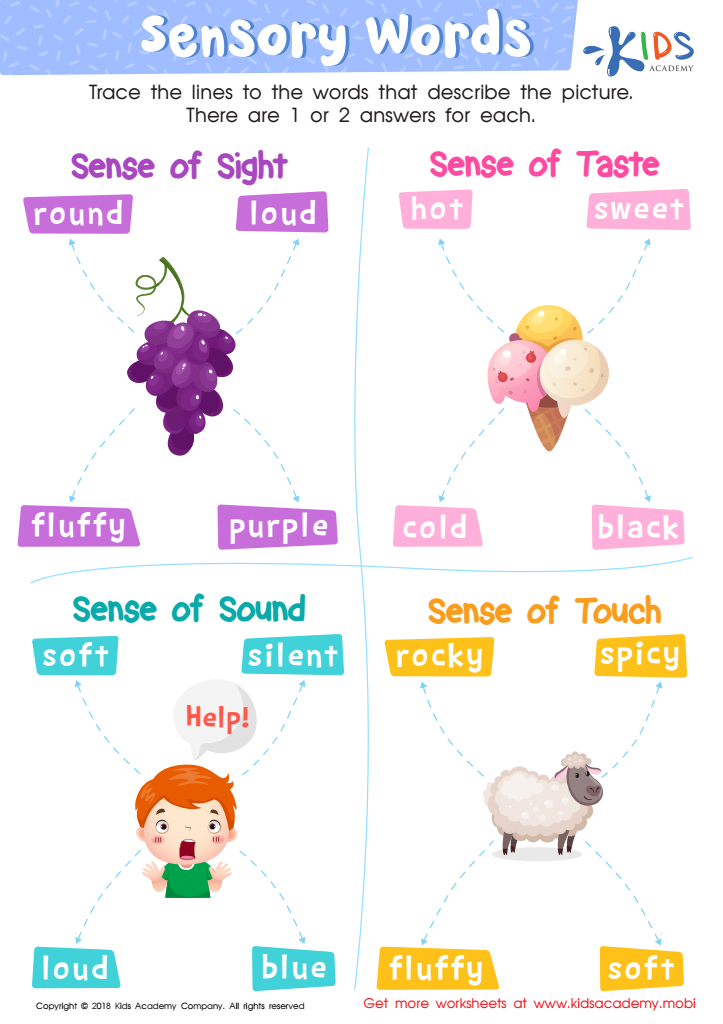

Sensory Words Worksheet
Enhancing vocabulary for children aged 7-8 is critical for their overall development and academic success. At this age, children are transitioning from learning to read to reading to learn, and a robust vocabulary is key to this process. A strong vocabulary helps students better comprehend texts, articulate their thoughts, and communicate effectively while engaging in discussions, both in and out of the classroom.
Parents and teachers should recognize that an expansive vocabulary correlates with higher academic achievement. Children with enriched vocabularies tend to excel in reading comprehension and standardized testing. Furthermore, vocabulary enhancement improves writing skills, enabling students to express themselves more creatively and persuasively.
Moreover, a well-developed vocabulary fosters self-confidence and social skills. Children who can articulate their ideas clearly are more likely to engage positively with their peers and adults, leading to better social interactions. Additionally, vocabulary skills enrich children’s enjoyment of language, supporting a lifelong love for reading and learning.
Incorporating vocabulary-building activities—like reading diverse texts, playing word games, and engaging in discussions—into daily routines can make learning enjoyable and effective, ensuring that children are well-equipped for future academic challenges and life experiences.

 Assign to My Students
Assign to My Students





















